Description
HED4814 Assignment 2 Memo | Due 30 July 2025. All questions fully answered. ASSIGNMENT INSTRUCTIONS
This assignment requires you to conduct an in-depth analysis of a complex South African educational case study. You will demonstrate your understanding of developmental phases, learning theories, and problem-based learning approaches while addressing the unique challenges and opportunities within the South African educational context.
CASE STUDY: THABO MOLEFE
Thabo Molefe is a 16-year-old Grade 10 learner at Tshwane Secondary School, a former Model C school in Pretoria East. The school serves a diverse student population due to post-apartheid integration policies. Thabo travels daily from Mamelodi township, facing long commute times and limited home learning support. His parents, though supportive, work long hours in factories and have limited educational backgrounds. Thabo is multilingual fluent in Sepedi, isiZulu, and Englishand is the first in his family to attend a previously white only institution. Thabo is physically healthy and active, but often appears fatigued. Cognitively, he excels with concrete concepts, especially in Maths and Life Sciences, but struggles with abstract thinking in English and History. Emotionally, he shows confidence in groups but anxiety during tests. Socially, he is well-liked but struggles with conflicting expectations from home and school. Environmentally, he has limited study space and occasionally no electricity. ASSIGNMENT QUESTIONS (TOTAL: 100 marks)
QUESTION 1: DEVELOPMENTAL ANALYSIS (20 marks)
•
a) Evaluate how each developmental domain influences Thabo’s learning experiences. (8 marks)
•
b) Critically analyse the cultural and socio-economic factors shaping Thabo’s development. (8 marks)
•
c) Identify and discuss potential developmental strengths that could be leveraged for academic success. (4 marks)
QUESTION 2: APPLY THE EARNING THEORY TO THABO’S CASE(25 marks)
•
a) Piaget’s Cognitive Development Theory (8 marks)
•
b) Vygotsky’s Sociocultural Theory (9 marks)
•
c) Erikson’s Psychosocial Development Theory (8 marks)
QUESTION 3: APPLY PROBLEM-BASED LEARNING DESIGN TO THABO(20 marks)
3
•
a) Using Thabo’s case, design an activity with implementation steps and objectives. (12 marks)
•
b) Using Thabo’s case used theoretical justification and contextual considerations. (8 marks)
QUESTION 4: INTEGRATIVE ANALYSIS AND RECOMMENDATIONS (15 marks)
•
a) Using Thabo’s case, integrate multi-level intervention strategy (learner, teacher, family, system). (8 marks)
•
b) Using Thabo’s case, contextualise integration and scalability in the South African education landscape. (7 marks)
QUESTION 5: REFLECTIVE ANALYSIS (10 marks)
•
a) Identify personal biases or assumptions you may bring into cases like Thabo’s. (5 marks)
•
b) Based on your personal experience, reflect on using strategies for ensuring inclusive and strengths-based practices. (5 marks)
QUESTION 6: POLICY AND ADVOCACY REFLECTION (10 marks)
•
a) Using Thabo’s case, personally reflect on educational policy reform implications. (5 marks)
•
b) Using Thabo’s case, personally reflect on advocacy for inclusive and developmentally responsive environments. (5 marks)

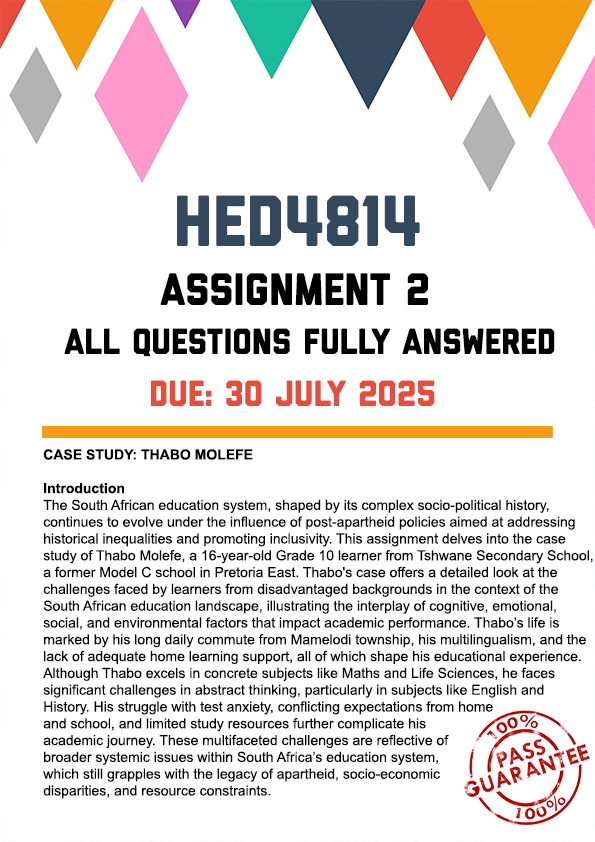

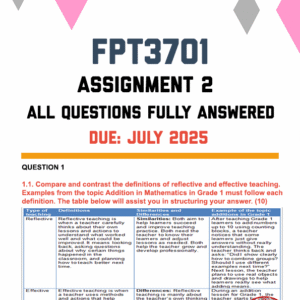


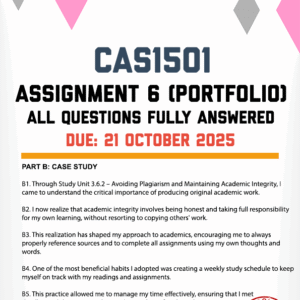
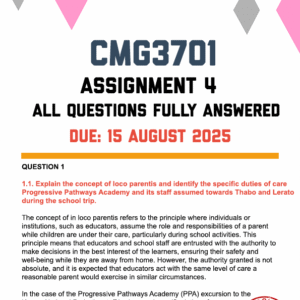

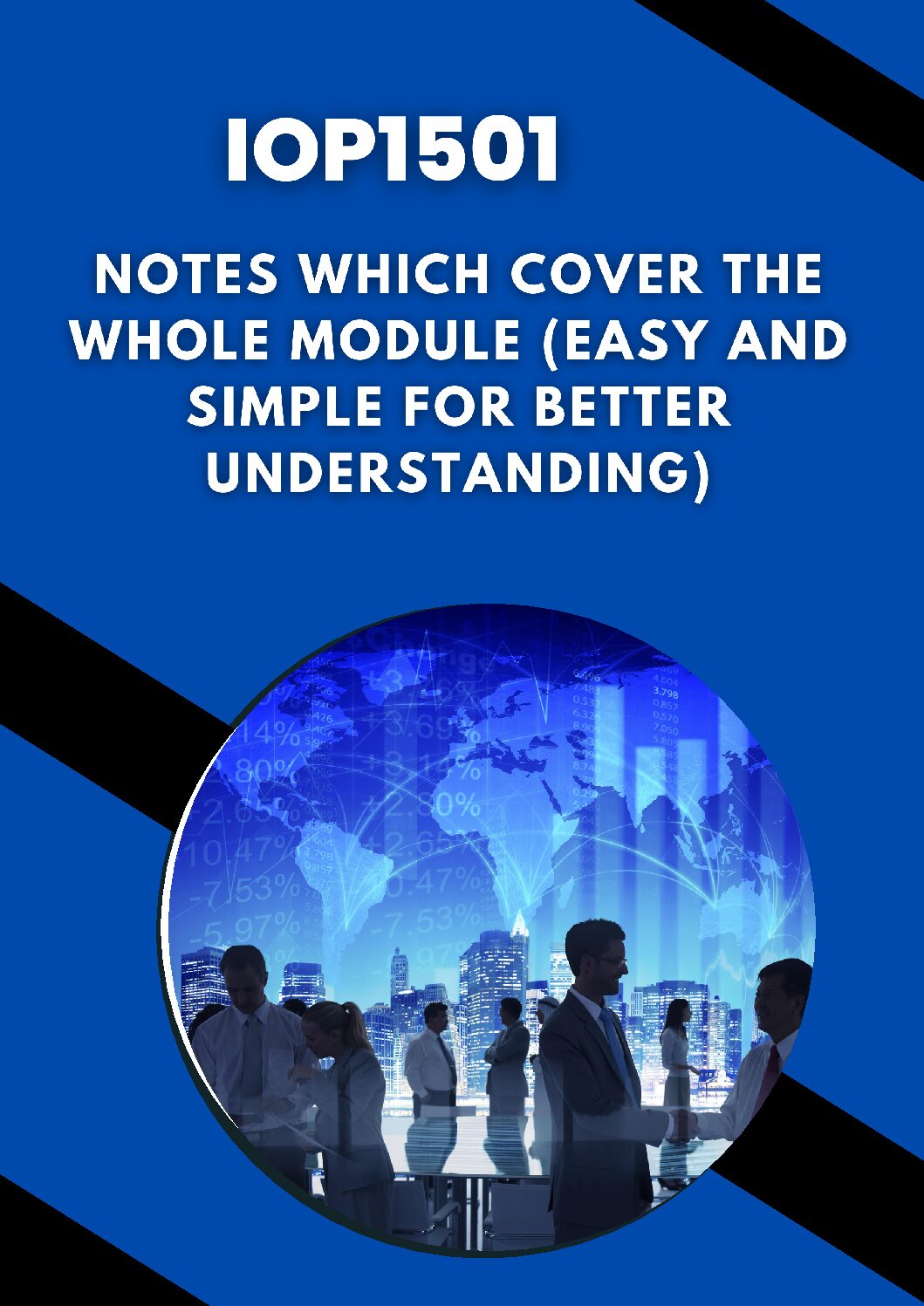

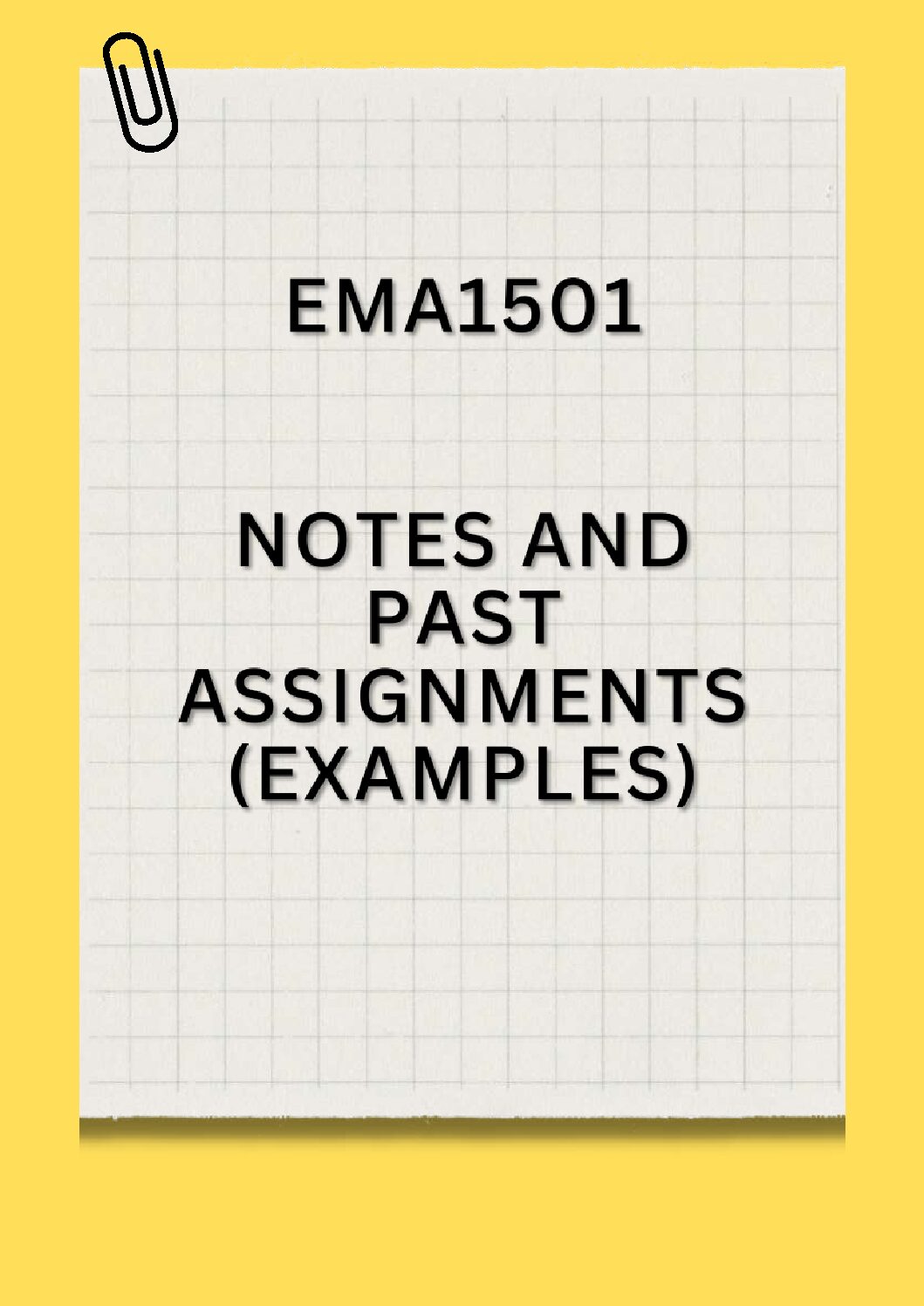
Reviews
There are no reviews yet.